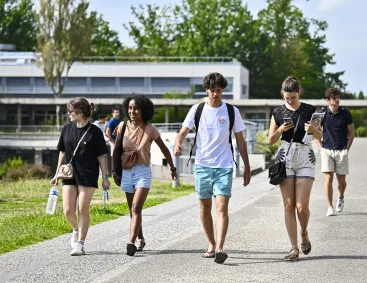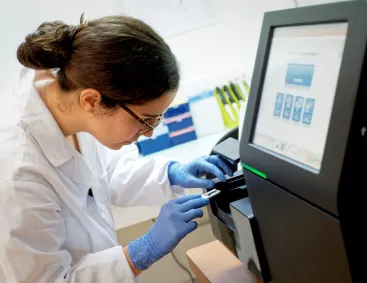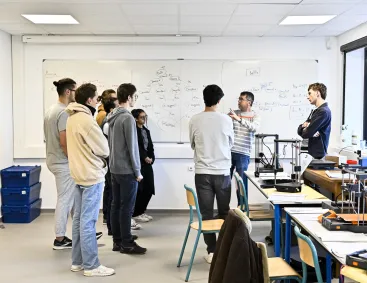After two years in the general engineering program at Centrale Lyon, Chloé went on to study medicine at the Lyon Est faculty as part of the dual Engineering-Physician program. Now in her fifth year of medical school, she looks back on a demanding career path, driven by curiosity, a desire to learn and a deep-rooted desire to be useful.
Ingénieur-Médecin: an unexpected opportunity at Centrale Lyon
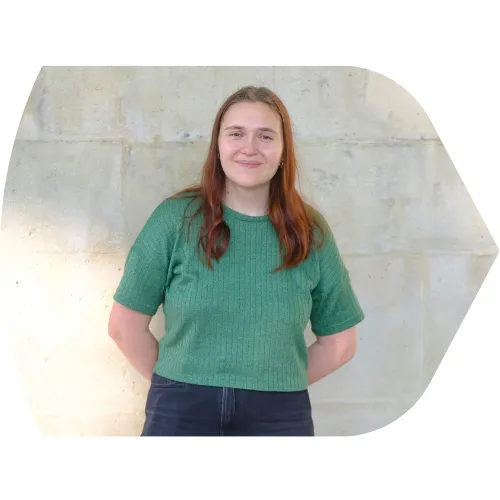
How did you discover this double degree? Why did you choose it?
In my final year of high school, I wasn't sure what I wanted to do. I loved maths and physics, but I was hesitating between medicine and a preparatory engineering course. At that point, my sister chose medicine, so I preferred to follow another path. Finally, during CPGE, I learned from friends that Centrale Lyon offered a double degree in engineering and medicine, and this clearly motivated my choice to enter this school.
How did the selection process go for the double degree in engineering and medicine?
Selection is based on dossier and cover letter from the first year of the generalist engineering course. If our profile is selected, we then have an interview to check our project and motivation. Four of us applied for five places. The pressure didn't come from numbers, but rather from the sincerity of our approach. These are quite long studies, so you need to be sure of yourself before committing to this double degree.
First steps in medical school
How did you experience your arrival at medical school?
I went from studies where I was pretty much at ease to a field where I knew absolutely nothing.The people around us are very strong, talking about organs I didn't even know existed. But in the end, between pre-prepa and the engineering curriculum, we've learned to manage a big workload, and we have a few methodological tricks that help us a lot.
Are you prepared to enter medical school? Is there any mutual support?
Yes, before arriving at university we have a mise à niveau during the second year of engineering which enables us to learn the basics. Then we join a class of 600 medical students, in which it's not easy to fit in because they've all known each other for three years. Fortunately, other students also arrive at the university via gateways, with very varied profiles: nurses, Sciences Po students, a hospital director... A real mutual support has developed between us, and most of them have even become friends.
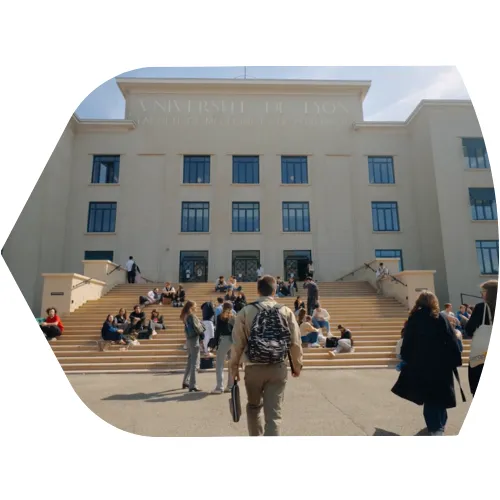
What are your medical studies like in concrete terms today?
The workload is more intense. We alter between classes, learning and practice with internships, which are present throughout the year, it's really great. Of course, there are times when our rhythm of life goes completely off the rails: we work nights, from 6pm to 8am, then sleep two hours later. It's obviously difficult, but you discover lots of things; I've done ortho surgery, neuro, cardio, nephro, adult and pediatric emergencies... it's exciting!
Medicine and engineering: a wide range of career opportunities
In what way are the two curricula, the two engineer and doctor profiles compatible?
For me, the two curricula are complementary because one brings scientific rigor and logic, while the other brings precise medical knowledge and humanity. If you want to go into medical research, I think it's good to be a doctor to target precisely the needs of the patients you see and to have a global vision of care. But it's true that engineering studies bring open-mindedness, adaptability and scientific logic that we're less taught otherwise.
How do you concretely use your engineering skills in medicine?
During my studies, the engineering lessons were a real plus, particularly for statistics - less in-depth in medicine - but also for chemistry and physics, which help to understand certain concepts, like ventilation in intensive care, for example, fully explained by fluid mechanics. At the same time, this year I did imaging research in a radiology department. And to understand all medical imaging, engineering background is clearly a first aid kit!
How do you see yourself in the future?
My goal is to specialize, to practice, but for the specialty, it's hard to say. My mother laughs at me because after each internship, I discover a new ambition. I really like nephrology, it's very rich, and also emergency, even if it's less compatible with research. And I'd really like to keep one foot in research, with a dedicated day in the week. In any case, I first have to pass the competitive examination that will determine my specialty as an intern... but I feel I belong here today. What I'm doing makes sense. It's not just technical, it's human and concrete. And that's exactly what I was looking for.

